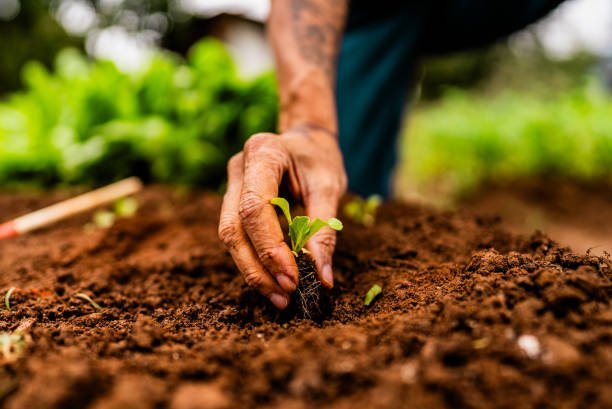Research Topics Related to Agricultural Economics
Agricultural Economics is a vital branch of economics that focuses on the production, distribution, and consumption of agricultural goods and services. It explores how agricultural resources are managed efficiently to maximize productivity, ensure food security, and promote sustainable development.
With the world facing challenges such as population growth, climate change, and food scarcity, research in agricultural economics has become more important than ever. It helps governments, researchers, and farmers understand the financial and policy implications of agricultural activities and how to make farming more profitable and sustainable.
This article presents a well-organized list of research topics related to agricultural economics, categorized by key subfields to guide students, scholars, and professionals in choosing relevant, impactful, and innovative research ideas.
Importance of Research in Agricultural Economics
Agricultural economics research plays a critical role in shaping global agricultural policies, improving rural livelihoods, and achieving sustainable development goals. Some of the main benefits include:
- Enhancing agricultural productivity and profitability.
- Promoting efficient resource use and market access.
- Informing government policies on food pricing and subsidies.
- Understanding the economics of climate change adaptation in agriculture.
- Reducing poverty through improved rural development strategies.
Categories of Research Topics in Agricultural Economics
Below are classified and well-detailed categories of research topics you can explore in the field of agricultural economics.
1. Agricultural Production Economics
This area examines how farmers use inputs such as land, labor, and capital to produce crops and livestock efficiently.
- Efficiency analysis of smallholder farmers in developing countries.
- Determinants of agricultural productivity in rural communities.
- Economic impact of mechanization on crop yield.
- Resource allocation and farm efficiency in mixed farming systems.
- Comparative analysis of organic vs. conventional farming profitability.
2. Agricultural Marketing and Trade
This category explores how agricultural products move from producers to consumers and how global trade policies affect the agricultural sector.
- The role of market information systems in improving farmer income.
- Impact of agricultural marketing boards on price stabilization.
- Effects of export bans and tariffs on agricultural trade.
- Market structure and competition in the agribusiness sector.
- Globalization and its impact on local agricultural markets.
3. Agricultural Policy and Rural Development
Research in this category focuses on policies that affect agriculture and rural livelihoods.
- Evaluation of government agricultural subsidy programs.
- Impact of agricultural extension services on rural development.
- Role of cooperatives in enhancing smallholder farmer income.
- Agricultural credit accessibility and its impact on farm productivity.
- Assessment of land reform policies on rural poverty reduction.
4. Environmental and Resource Economics in Agriculture
This branch deals with the interaction between agricultural production and the environment.
- Economic analysis of sustainable land-use practices.
- The impact of deforestation on agricultural productivity.
- Cost-benefit analysis of organic farming for soil conservation.
- Water resource management and irrigation efficiency.
- Economic implications of climate-smart agriculture.
5. Food Security and Agricultural Sustainability
Food security research focuses on ensuring everyone has access to sufficient, safe, and nutritious food.
- The role of agricultural diversification in achieving food security.
- Impact of climate change on food supply and prices.
- Economic analysis of post-harvest losses in developing countries.
- Evaluating food security policies in Sub-Saharan Africa.
- The economics of sustainable farming practices.
6. Agricultural Finance and Investment
This category examines how financial systems support agricultural growth.
- Determinants of agricultural loan repayment performance.
- The role of microfinance institutions in rural farming communities.
- Investment opportunities in agribusiness value chains.
- Risk management and insurance adoption among farmers.
- Impact of agricultural credit on farm productivity and income.
7. Agribusiness and Value Chain Economics
Agribusiness focuses on the economic activities involved in processing, packaging, and distributing agricultural products.
- Value chain analysis of cash crops like cocoa, coffee, or cotton.
- The role of small-scale agribusinesses in rural employment creation.
- Economic potential of agro-processing industries.
- Market linkage development for smallholder farmers.
- Challenges and opportunities in agricultural entrepreneurship.
8. Agricultural Technology and Innovation Economics
With technology transforming agriculture, research in this area focuses on the economic benefits and adoption challenges of agricultural innovations.
- Economic impact of precision farming and drone technology.
- Adoption of digital platforms in agricultural markets.
- Cost-benefit analysis of mechanized farming systems.
- Farmer perceptions toward genetically modified (GM) crops.
- The role of artificial intelligence in agricultural productivity.
Conclusion
Research in Agricultural Economics is fundamental to building sustainable and resilient agricultural systems. It provides insights into efficient resource allocation, effective policy formulation, and improved market linkages.
Whether you’re a student, researcher, or policymaker, exploring the areas above will not only deepen your understanding of the agricultural economy but also contribute solutions to global challenges like food insecurity, poverty, and environmental degradation.
Each category listed here represents a pathway to impactful and relevant research that can influence both academic and real-world agricultural development.
FAQs on Research Topics Related to Agricultural Economics
1. What are the major areas of research in agricultural economics?
Major areas include production economics, marketing, rural development, food security, agribusiness, agricultural finance, and environmental economics.
2. Why is agricultural economics important?
Agricultural economics helps in optimizing the use of agricultural resources, formulating better policies, improving farmers’ income, and ensuring sustainable food systems.
3. What are good dissertation topics for agricultural economics students?
Students can focus on topics such as agricultural credit accessibility, value chain analysis, climate-smart agriculture, and food security policy evaluation.
4. How does agricultural economics relate to environmental sustainability?
It studies how agricultural practices impact natural resources and helps design policies that promote both productivity and environmental conservation.
5. What technologies are shaping the future of agricultural economics research?
Technologies such as data analytics, artificial intelligence, GIS mapping, and digital agriculture platforms are transforming modern agricultural economic research.
ALSO READ: Research Topics Related to Soil Science







One Comment